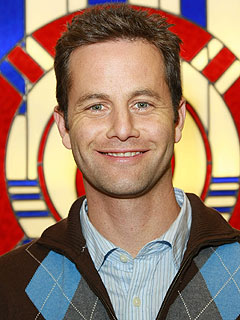
Shirley Chaplin, a committed Christian, has been told by her employers that she must hide or remove the cross or remain out of the hospital wards.
Royal Devon and Exeter Hospital told her that she cannot wear the one-inch tall silver cross openly around her neck, because it breaches their uniform policy and poses a risk to patients.
While the Trust has banned the crucifix in its wards, it makes concessions for other faiths, including allowing Muslim nurses to wear headscarves on duty.
She has been warned by her employers that she will be suspended if she does not comply with their request. There are fears that this would lead to her dismissal.
Mrs Chaplin, 54, says she has been shocked and distressed by the threat, which means she must choose between her faith and her job.
She has spent all of her career at the hospital and has never been challenged before for wearing the necklace, which she considers to be a symbol of her deeply-held Christian faith.
The move is likely to reignite the row that erupted over a British Airways employee who was told she could not openly wear a cross necklace, and will fuel fears that Christians are being discriminated against in the workplace.
Mrs Chaplin will meet with hospital representatives tomorrow to discuss her future, but is taking the Trust to an employment tribunal, claiming that she has been targeted because of her faith.
"I feel that I'm being bullied and victimised because of my faith," she said.
"I can't explain how important the cross is to me. It's how I express my faith.
"Being told to take it off has completely and utterly shaken me."
The married mother of two has worn the necklace ever since her confirmation service 38 years ago.
A uniform and dress code policy that banned necklaces was introduced by the Trust last year, but she was not questioned over her cross until June this year.
When Mrs Chaplin refused her manager's request to remove the cross she was warned that would she not be allowed to continue working on the wards unless she took it off or wore it under her clothes.
She was taken off duty in July and was warned last month that she would be suspended if she refuses to back down or accepts an administrative role at the hospital, which could affect her pension.
"I don't want to have to decide between my faith and my vocation," said Mrs Chaplin.
"My Christian faith is what motivates me to care for others.
"They've no made no provision for someone like me who has a strong faith. They're prepared to make allowances for other faiths, but not for Christianity."
A spokesman for the NHS Trust said that the uniform policy meant that they were obliged to act over Mrs Chaplin's cross.
"The Trust considers the wearing of a necklace to be a risk, albeit small, within a clinical setting because patients, particularly those who may be confused, do sometimes grab for items when being moved."
The spokesman admitted that not everyone at the hospital complies with the code, but said that this was the first time a member of staff had refused to co-operate with the policy.
Exceptions are made for requirements of faith, but a crucifix is not considered to fall under this category, they added.
Mrs Chaplin has sought advice from the Christian Legal Centre, which seeks to promote religious freedom and, particularly, to protect Christians and Christianity.
She is being represented by leading human right's Barrister Paul Diamond, who advised Caroline Petrie, the nurse who was suspended for offering to pray for a patient and then reinstated.
Andrea Minichiello Williams, founder and director of the centre described the Trust's action as "astonishing".
She added: "You cannot separate a person's faith and motivation from other areas of their life, including their work.
"Unfortunately an aggressive, secularist, politically correct agenda is being driven in the NHS and other public sectors at present.
"This agenda is leading to case after case of discrimination against Christians and real suffering."
Other NHS Trusts in England actively encourage the wearing of religious symbols by staff, so long as they do not breach the health and safety requirements of the wearer's particular role.
Berkshire Healthcare NHS Foundation Trust has a "policy on religion" which states: "The wearing of items in accordance with particular spiritual, religious or faith traditions and associated cultural practices – for example, the wearing of hijab, kippah, mangal sutra, sari, headwear and crucifix, jewellery/adornments – will be seen as part of a welcome diversity."
A spokesman for the Berkshire Trust said: "We take a pragmatic approach. We don't see any reason why a nurse on a ward wouldn't be allowed to wear a cross provided quality of care and health and safety weren't compromised.
“Where a member of staff in a ward environment needed to wear a head dress in line with their religious requirements, they were permitted and allowed to do so after discussion with infection control and an assessment of health and safety.
“A Muslim woman wearing a headscarf would be seen as a requirement of faith and does not cause a health and safety risk for her patients. This nurse’s faith does not require the wearing of a necklace or a crucifix, so our position is that this is not an issue of faith but an issue of health and safety in the work place.”












